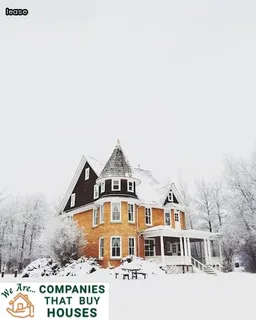Lease Agreement Terms are an important part of understanding North Dakota landlord-tenant laws and regulations pertaining to damage to property. The lease agreement should clearly outline the responsibilities of both the landlord and tenant when it comes to property repairs.
For example, in most cases, landlords are responsible for making repairs due to normal wear and tear, while tenants may be liable for any damages caused by their negligence or improper use of the premises. Landlords must also follow specific rules regarding notification to tenants before entering a property, as well as the maximum amount that they can charge tenants for security deposits and application fees.
Additionally, there are certain legal requirements that must be met when creating a lease agreement in North Dakota, such as outlining how disputes will be handled between the two parties. It is essential for landlords and tenants alike to understand these terms in order to ensure that their rights are protected when it comes to repair costs.

When it comes to landlord-tenant rights and responsibilities, understanding North Dakota's laws and regulations on damage to property is essential. Landlords have the right to be compensated for repair costs associated with tenant-caused damage, while tenants are responsible for taking good care of the rental property.
Tenants must also adhere to any rules outlined in their lease agreement, such as notifying the landlord of any necessary repairs in a timely manner. As far as liability is concerned, landlords should be aware that they cannot hold a tenant responsible for normal wear and tear caused by regular use of the premises.
Additionally, landlords are expected to provide tenants with safe and sanitary living conditions at all times, which includes ensuring any hazardous materials or lead-based paint present on the premises is properly addressed. Lastly, when a tenant vacates a rental unit, landlords should inspect the property for damages and deduct any amount owed from their security deposit.
Understanding North Dakota's landlord-tenant laws and regulations regarding damage to property helps both parties protect their legal rights.
In North Dakota, a landlord is legally required to return the security deposit within 30 days of the tenant vacating the property. A landlord can withhold money from the deposit for damages that are caused by the tenant beyond normal wear and tear, but they must provide an itemized list of deductions within 14 days along with any remaining balance.
If a landlord does not refund the security deposit within 30 days, they must pay three times the amount of the deposit to the tenant. Landlords may also be liable for additional damages if they fail to maintain any existing premises or comply with housing codes and health regulations.
To protect themselves from financial repercussions, landlords should clearly explain their policies on damages and security deposits in their lease agreement and follow all mandated rules when dealing with deposits and damage claims.

When it comes to understanding North Dakota landlord-tenant laws and regulations regarding damage to property, there are certain considerations concerning the return of security deposits. In North Dakota, landlords must provide tenants with a written statement of the conditions for returning a security deposit within 30 days of the tenant vacating the rental unit.
This statement must include a list of any damages deducted from the security deposit as well as an itemized list of costs associated with each deduction. If deductions are taken from the security deposit, landlords must also provide receipts or other evidence that show how much was spent on repairs due to damage caused by the tenant.
Additionally, if any deductions have been taken from a security deposit, North Dakota law requires landlords to return any remaining portion of the deposit within 14 days after receiving notice that the tenant has vacated.
Rent increases, like any other change to the terms of a lease agreement in North Dakota, must be done according to state regulations. Landlords and tenants should both be familiar with the laws surrounding rent increases, as they can vary depending on the type of property being leased.
Generally speaking, landlords must provide written notice at least 30 days before increasing rent prices, and this notice must include the amount of the increase and when it will go into effect. Additionally, landlords cannot increase rent more than once every 12 months; any subsequent increases within that period require written notice at least 90 days in advance.
Lastly, rent increases are not allowed during the duration of a tenancy unless specified in the lease agreement. It is essential that both parties understand these guidelines for rent increases in North Dakota to ensure all parties are aware of their rights and responsibilities under the law.

When it comes to understanding North Dakota landlord-tenant laws and regulations for damage to property, roommates should be aware that the state requires landlords to carry a minimum of $100,000 in liability insurance, which provides protection against certain types of property damage. Fair housing laws also apply in North Dakota, so landlords must not discriminate against potential tenants based on their rental history or ability to pay rent.
Additionally, if there is more than one tenant living in the rental unit, then both tenants are jointly responsible for any damages caused by either party. If one tenant causes damage to the property and leaves without paying for it, the other tenant may be held responsible for covering any costs associated with the repair.
It is important that roommates understand these basic regulations in order to ensure they are properly protected from financial liabilities associated with property damage.
When it comes to understanding North Dakota landlord-tenant laws and regulations for damage to property, one of the most crucial areas is utility payment and usage regulations. Whether it is a landlord or tenant paying the utilities, the law specifies certain rules for how bills are paid, who can access the property’s utilities, and how much energy or water can be used.
Landlords must provide tenants with an itemized list of all utility costs associated with their rental prior to signing a lease agreement. Tenants are expected to pay utility bills in full on time each month, while landlords must cover any costs related to installing or repairing equipment associated with providing electricity, gas, water, heating, cooling and garbage disposal services.
Furthermore, tenants are not allowed to make unauthorized changes or alterations to existing utility systems unless they have been granted permission by their landlord. Both tenants and landlords should be aware that if these provisions of North Dakota law are violated, consequences may ensue.

In North Dakota, it is the landlord’s responsibility to ensure that the property remains in a safe and habitable condition for tenants. This means that landlords must keep the premises up to code, make repairs when necessary, provide working utilities, and comply with all health and safety regulations.
Additionally, landlords must take reasonable steps to prevent damage from occurring on their property. For example, they can install smoke detectors and other safety devices, keep common areas clean and free of debris, and perform regular maintenance tasks such as replacing worn carpeting or repainting walls when needed.
Landlords are also responsible for ensuring that tenants have access to functioning locks and secure windows as well as providing proper notice before entering the dwelling. Lastly, North Dakota law states that if any damages occur due to the landlord’s negligence or breach of duty (such as failing to properly maintain the rental unit), they are responsible for covering any costs associated with repairs.
In North Dakota, tenants are held liable for damage to the property that they rent, although the extent of this liability varies between landlords. Generally speaking, tenants are responsible for all damage to the rented property caused by their own activity or that of any other person in their household.
This responsibility extends to damage caused by negligence, such as failing to maintain the property in a reasonable fashion, or by intentional actions such as vandalism. Tenants may also be held liable for damages resulting from their failure to follow local laws and ordinances regarding housing regulations.
In addition, if a tenant fails to pay rent or other charges due under the lease agreement, they could be held financially responsible for any damage caused during this period. Landlords must provide written notice of any damages for which a tenant is held liable before attempting to collect on those charges.

Subleasing policies and procedures are important for both landlords and tenants to understand when it comes to damage to property in North Dakota. Landlords must be aware of their rights and obligations regarding the subletting of premises, as well as potential damages that may occur due to such arrangements.
Tenants must be familiar with the regulations related to subleasing, including any notification requirements that must be provided to landlords before entering into a new lease agreement or subletting arrangement. Additionally, North Dakota law requires landlords to provide written notice of any damages that may have occurred during a sublease period.
This notice should include specific descriptions of the damage, estimated costs for repair, and details regarding who is responsible for payment. Furthermore, it is wise for both parties to keep records of communication regarding any potential damage throughout the duration of the lease or sublease agreement, as this can provide valuable evidence should a dispute arise in the future.
Rental properties in North Dakota have specific pet policies that both landlords and tenants must adhere to. Landlords must follow the state's guidelines for renting properties to tenants with pets and establish their own pet policies as well.
Tenants should be aware of the rules, regulations, and fees associated with bringing a pet into a rental property. These may include restrictions on pet size or breed, a maximum number of pets allowed, and pet deposits or additional fees.
Landlords are also responsible for ensuring that all pets are up-to-date on vaccinations, spayed/neutered, and registered with the local authorities. It is important for both the landlord and tenant to understand these policies before signing a lease agreement so that everyone involved is clear on the expectations for having a pet in the rental property.

Noise complaints are a common issue between landlords and tenants. In North Dakota, it is important for both parties to understand the relevant laws and regulations that apply when dealing with damage to property as a result of noise disturbances.
Landlords must ensure that their tenants comply with reasonable noise levels in accordance with local ordinances and any written agreements that are part of the lease, such as quiet hours. Tenants who are disturbed by loud noises coming from other units in the building should contact their landlord promptly to inform them of the problem.
The landlord has an obligation to investigate any complaints they receive in a timely manner and if necessary, take appropriate action to address the issue. Depending on the severity of the situation, this could include imposing fines or eviction proceedings against those responsible for breaking landlord-tenant laws and regulations.
In North Dakota, landlords and tenants must be aware of the laws and regulations that govern rental property management - in particular, regarding discrimination. The Fair Housing Act, enforced by the U.
Department of Housing and Urban Development (HUD), prohibits landlords from discriminating against potential tenants based on race, color, national origin, religion, sex, disability or familial status. It is illegal to refuse to rent to a tenant because they are part of one of these protected classes or advertise properties as being available only to certain groups.
Additionally, it is illegal for landlords to set different terms and conditions for tenants in these protected classes. Landlords should also be aware that local governments may have additional protections for tenants beyond those outlined in federal law.
Tenants should familiarize themselves with both federal and state laws to ensure that their rights are not violated when renting property in North Dakota.

If you are a landlord or tenant in North Dakota and have questions about the laws and regulations surrounding damage to property, there are many legal support resources available. These include local government offices, private law firms, tenant-landlord organizations, rental assistance programs, and state-wide legal aid societies.
All of these resources can provide advice on how to navigate North Dakota's Landlord-Tenant Laws & Regulations for Damage to Property. Additionally, they offer access to legal representation and dispute resolution services if needed.
Furthermore, landlords and tenants can take advantage of online information portals that provide access to documents such as lease agreements and other forms. Finally, most counties in North Dakota offer informational seminars on landlord-tenant laws & regulations related to damage to property throughout the year.
Under North Dakota law, rental properties must be habitable and meet certain requirements in order to meet the standards of a safe and livable residence. Landlords must maintain the property according to state and local health and safety standards.
This includes ensuring that all necessary repairs are made in a timely manner, that plumbing, electrical wiring, heating, ventilation, air conditioning systems, doors and windows are all properly maintained. Landlords must also ensure that smoke detectors are installed and working properly.
Furthermore, landlords must provide clean and sanitary conditions in the rental unit as well as access to clean water from a safe source. Lastly, landlords must provide adequate garbage removal services for tenants living in their rental units.
It is important for tenants to understand their rights when it comes to rental property damage so they can take legal action if their landlord does not make necessary repairs or abide by hability requirements.

When signing a lease for a North Dakota property, it is important for landlords and tenants to understand the state's laws and regulations about damage to property. Before the lease is signed, tenants should thoroughly inspect the premises or hire a qualified third party inspector to do so.
During the inspection, tenants should take pictures of any existing damage to the property, as well as document any discrepancies between what was promised in the lease agreement and what they are actually receiving. It is also recommended that tenants create an inventory of all items included in the rental unit, such as furniture and appliances.
This can be used both as evidence of pre-existing damages upon move-in and also help protect them from false accusations of damage at move-out. Additionally, landlords are required to provide written disclosure of any known defects on their properties prior to signing a lease agreement.
Failing to do so could result in legal ramifications for landlords if damages occur throughout the tenancy period.
When it comes to early termination of a lease agreement in North Dakota, tenants must adhere to specific regulations. First, the tenant must provide written notice to the landlord at least 30 days prior to vacating the premises.
This notice must specify the date on which the tenant intends to terminate the lease. The landlord may also be subject to certain eviction procedures if they fail to abide by their obligations under the lease agreement.
It is important for both parties to be aware that any unconscionable rental agreements are considered unenforceable and can be declared void by a court. In addition, landlords are entitled to charge late fees penalties for non-payment of rent, but only if such fees were included in their original rental contract.
North Dakota is known for being a tenant-friendly state when it comes to landlord-tenant laws and regulations. The state has several protections in place for tenants, including statutes that regulate the amount of security deposits landlords can charge, how quickly they must return deposits after a tenant moves out, and how much notice landlords must provide when raising rent or terminating tenancy.
Additionally, North Dakota's regulations require that landlords take reasonable steps to protect their tenants' property from damage, including repairing any issues due to normal wear and tear as soon as possible. Landlords also have a responsibility to keep the rental unit in safe condition by making necessary repairs and providing maintenance when needed.
This makes North Dakota an ideal place for tenants who are looking for legal protection should any damage occur while they are renting.

North Dakota Century Code 47 16 07 governs the rights and obligations of landlords and tenants in relation to damage to property. It outlines the process for filing a claim against an at-fault landlord, as well as the steps that must be taken by both parties to ensure proper repair and compensation.
This law also includes rules for when a tenant is found liable for any property damage, such as requiring that they must pay for the repair or replacement of any damaged property within 30 days. Additionally, this code also sets out guidelines for when a landlord can withhold security deposits from a tenant due to property damage.
By understanding North Dakota Century Code 47 16 07, landlords and tenants alike can ensure that their rights and responsibilities regarding damaged property are clearly established and enforced.
Yes, a landlord in North Dakota can charge for carpet cleaning. According to the North Dakota Attorney General's website, landlords have the right to deduct from the security deposit of a tenant if there is damage to property in excess of normal wear and tear.
This includes any damage to carpets or flooring that requires professional cleaning. Landlords should provide written notice of the deduction from the security deposit, as well as an itemized list of all costs associated with it.
The tenant may dispute any charges in writing within 14 days of receiving the notice and may be entitled to reimbursement for any charges found to be unfounded. It is important for tenants and landlords alike to understand their rights and responsibilities under North Dakota's landlord-tenant laws and regulations regarding damage to property in order to ensure a fair outcome for both parties.
In North Dakota, landlords are required to provide a minimum of 24 hours’ written notice before entering a tenant’s property.
In certain urgent situations, such as in the case of an emergency, landlords may enter without prior notice.
Furthermore, if the landlord has reasonable cause to believe that damage to property is occurring or has occurred due to tenant negligence or abuse, they may enter without providing written notice.
When it comes to understanding North Dakota landlord-tenant laws and regulations for damage to property, it is important for tenants to be aware of their right to privacy and the limited circumstances under which the landlord can enter without providing written notice.
A: According to the North Dakota Century Code § 47-16-14.1, tenants who have signed a lease or rental agreement must provide written Notice to Quit at least one full rental period in advance.
A: If a tenant causes damage to the property they are renting, the landlord may be able to recoup the costs of repairs from the tenant's security deposit or by taking legal action. In some cases, tenants who have caused significant damage to a property may be evicted.

A: Under North Dakota law, a landlord may file a summons and complaint in court to seek damages against a tenant who has caused damage to the property due to violence or discriminatory acts. The landlord can also terminate the lease with no notice if the tenant engages in such behavior.
A: Yes, tenants in North Dakota must provide consent before landlords can enter the rental unit to make any repairs due to damage caused by the tenant.
A: A landlord in North Dakota Small Claims Court can seek compensation from a tenant for all costs associated with repairing or replacing damaged property. If a judge rules in favor of the landlord, the tenant is responsible for paying any court costs, attorney fees, and restitution ordered by the judge.

A: No, landlords are not required to make reasonable accommodations for persons with disabilities who have caused damage to the property in North Dakota. However, they must comply with fair housing laws and not discriminate against tenants on the basis of disability.
A: In North Dakota, landlords and tenants must sign a legally binding contract that outlines each party's rights and responsibilities when it comes to any potential damage to the property. This includes specifying who is responsible for any repairs, who pays for damages resulting from negligence, and how much interest is charged if either party fails to fulfill their obligations as outlined in the contract. Researching state laws and local ordinances may also be helpful in understanding all of the legal implications of tenant damage to property in North Dakota.
A: In North Dakota, tenants have a legal responsibility to maintain their apartments in good condition, including paying for any damages caused by themselves, their guests, or their pets. Tenants must also comply with lead-paint disclosure laws and housing discrimination laws. Additionally, tenants must adhere to their contractual agreement regarding damage to property, which can require compensation for damages if applicable.

A: In North Dakota, tenants are required to maintain the property in a safe and healthy condition and must pay for any damages they cause to the property beyond normal wear and tear. Tenants should also be aware that rent control policies may limit what landlords can charge when it comes to damage caused by tenants. Additionally, if a tenant breaks their occupancy agreement by causing intentional or negligent damage to the property, the landlord may take legal action against them.
A: The landlord may deduct repair costs from the security deposit, or take legal action and seek compensation in Small Claims Court. In some cases, the landlord may also be able to increase rent or terminate the lease.
A: Landlords in North Dakota may seek reimbursement through the security deposit, rent increases and fees, or they may pursue legal action if the tenant has caused significant damage. In some cases, landlords can terminate a lease if the tenant has caused irreparable damage to the property. Lastly, landlords may also be able to seek compensation for repair and maintenance expenses in North Dakota Small Claims Court.
A: In North Dakota, landlords are liable to repair any damage caused by tenants or their guests, regardless of fault. Landlords can seek monetary compensation from tenants for repairs and other expenses related to the damage through Small Claims Court.
A: In North Dakota, the landlord has two main remedies for tenant damage to property, depending on the amount of damage caused. The first is a Security Deposit claim, where the landlord can deduct from the security deposit an amount equal to or less than the cost of repairs. The second remedy is a Renters Insurance claim, which covers any additional costs beyond what is covered by the security deposit. Additionally, landlords may pursue legal action through a lease agreement or Small Claims Court and use the Repair and Deduct Remedy if necessary.
A: In North Dakota, a landlord must make reasonable efforts to repair any damage caused by a tenant. The landlord can seek compensation for damages through the court system if necessary, but they may not take any legal action against the tenant themselves. If there is an agreement in place between the landlord and tenant regarding damages, that agreement should be followed.
A: The Repair and Deduct Remedy allows a tenant to repair any damages done to the rental unit or property, and then deduct the cost of repairs from their rent. This remedy can be used when a landlord fails to make necessary repairs, or if the tenant has caused a significant amount of damage that cannot be settled through Security Deposit deductions, Rent Increase Notices, or Lease Terminations.
A: North Dakota statutes do not specify a maximum late fee that a landlord can charge for tenant damage to property. However, landlords are prohibited from charging an amount greater than is reasonably necessary to cover any damages caused by the tenant.
A: The landlord may deduct the cost of repairs from the tenant’s security deposit, or may increase rent or charge fees to cover the costs. If the tenant is unwilling to pay, the landlord may terminate the lease and pursue legal action in small claims court.
A: Yes, the North Dakota Human Rights Act prohibits any landlord from denying housing based on various characteristics such as race, gender, religion, and marital status. Landlords are also prohibited from retaliating against tenants if they file a discrimination complaint.
A: According to North Dakota Landlord-Tenant Laws & Regulations, landlord may seek compensation for repair or replacement of damaged property in Small Claims Court. Alternatively, landlords may also pursue the Repair and Deduct Remedy which allows them to repair or replace any damage caused by a tenant and deduct the cost from their security deposit. If a tenant does not pay for damage caused to a property, the landlord can take legal action.
A: In North Dakota, a tenant is responsible for repairing any damages they cause to the property during the tenancy. The landlord may require the tenant to pay for repairs or deduct from their security deposit. If the tenant does not pay for the damage, legal action can be taken by the landlord.
A: The Repair and Deduct Remedy allows a tenant to repair any damage caused to the rental property due to their negligence, and then deduct the cost of repairs from their next month's rent. If the damages exceed the amount of one month's rent, the tenant may be required to seek compensation from their security deposit or renters insurance policy. If neither of these are available, they may have to take legal action against their landlord in order to recover damages.
A: Tenants are responsible for any damages to a property caused by negligence or intentional acts of themselves, their family members, or guests. Tenants must also follow any rules and regulations set by the landlord related to damage of the property. If a tenant causes damage to the property, they may be held financially responsible for repairs or replacement costs.
A: In North Dakota, a landlord may seek compensation for damages caused by a tenant in Small Claims Court. The landlord can also increase security deposits and rent, charge fees, or terminate the lease depending on the severity of the damage. As a final legal remedy, the landlord can pursue the Repair and Deduct Remedy which allows them to repair any damage caused by a tenant and deduct that amount from their rent.
A: North Dakota law states that tenants are liable for any damage caused to the property during a sublease or assignment, and landlords may seek compensation from the tenant through Small Claims Court. Tenants may also be subject to eviction if they fail to pay for damages caused.